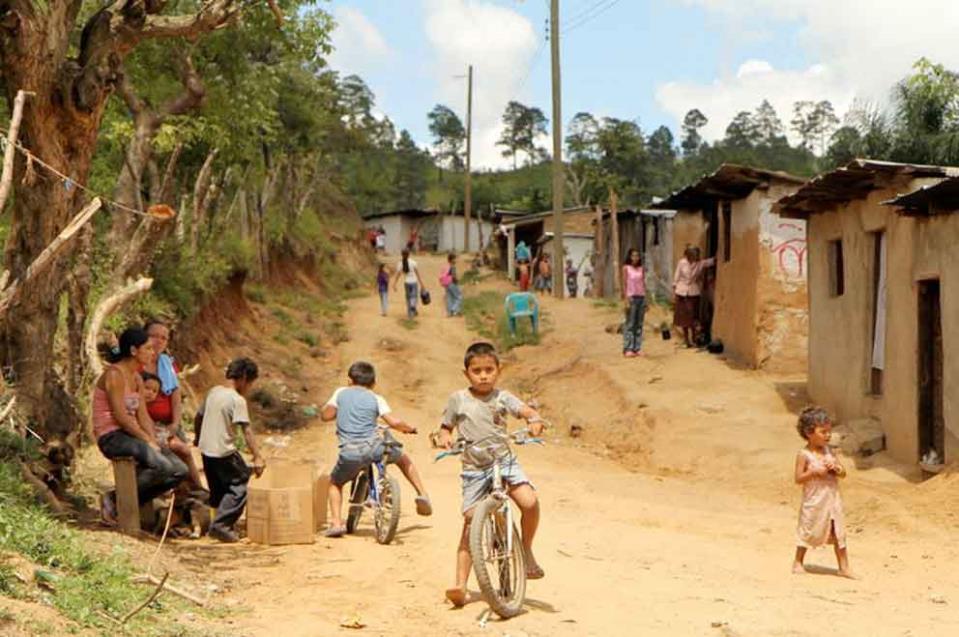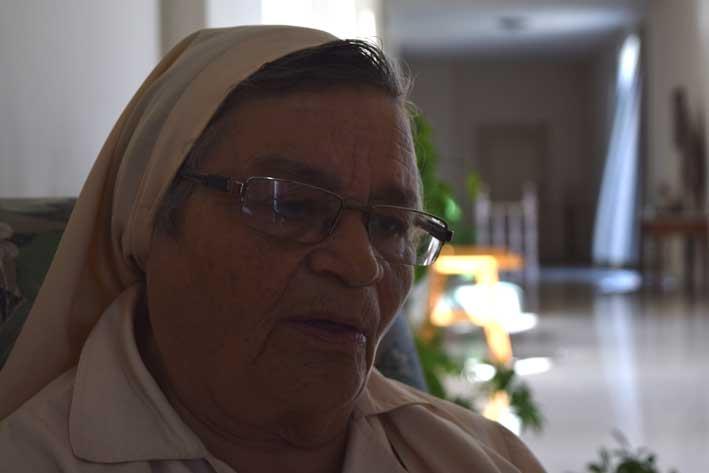Across the world, hundreds of Maltese missionaries have given up on everything to help others, braving poverty, ineqaulities and attrocities that we can’t even start to imagine. Sister Celeste Buhagiar, a member of Sisters of Charity of St Jeanne Antide, left for Pakistan thirty years ago and today runs a dispensary, proving locals with treatment for widespread diseases. Despite being close to celebrating her 80th birthday, she has no intention of stopping her missionary work anytime soon. Therese Bonnici writes.
“ I wanted to become a missionary ever since my twin sister (also a nun) left for Pakistan some forty years ago. But I never thought it would become my life. It changes you – you forget about yourself and give all you have to others. Each time I visit Malta, people keep asking if I’m going back – but of course I will. As long as I’m physically able, there is no reason why I should stop helping others,” she tells The Malta Independent.
Sister Celeste first arrived in Shahdara, Pakistan in 1986, when she was forty-seven years old. Before her missionary work, she worked for six years at Mount Carmel Hospital and for 15 years at St Vincent De Paul, previously known as Tas-Serħ.
“ It was definately a cultural shock. You’re not quite sure what to expect. I was impressed by what they wear, what they eat and particularly where they live. Families live in sheds - a one-room house. There’s nothing much inside – simply one bed on which the entre family has to sleep on – irrelavant of how many members there are,” she explains.
“ In summer, the entire road is lined up with metal beds and locals stay out there. It is simply too hot to stay in one room- especially when temperatures get extremely high. The woman cook once every twenty-four hours and children sit outside on the floor to eat.”

Getting children into schools
In Pakistan, The Sisters of Charity work to enhance education among young people, provide medical treatment and care for people who are marganilsed by society. The sisters do their best to get as many children into school as possible, visiting villages to check on which children still need to be enrolled. The families can’t afford to buy the uniform or books needed and the sisters provide the neccessary money or resources.
The community have also opened up The St Jeanne Antide Bible High School, in Shahdara, teaching science to young girls, allowing them to become nurses later on, helping provide for their own family.
Decades ago, only 3% of women attended school, but over the years, that number has increased to 50%.

Providing medical treatment
Sr Celeste leads a popular dispensary giving treatment for well-spread diseases in Pakistan. “People walk for miles to get to the dispensary, mostly because they need treatment for severe allergies such as Scabies. There are days when I deal with 70 patients on my own,” she explains.
“We accompany patients with Tubercolosis to the state hospital, where they get the neccessary medications for free. But when it comes to Hepetitis, there is very little we can do, because the medication is too expensive. Not being able to help them is what feels worst of all.We help out as much as we can – we do not reject anyone,” Sr Celeste says.
“A couple of weeks ago I had a patient come over with a wound on his feet. He had the wound for two years... I realised it was Tubercolosis and assisted hi through the neccessary treatment. It has now healed.”
They have so little and yet...
“These people have so little and yet they are so happy and grateful. I’ve been there for thirty years and yet they still amaze me on how the lead such a life. They lead their life with such simplicity and peacefullness. They live hey live day by day – they’re not thinking on whether they’ll be able to afford food the day after,” she says. “ Women work carrying their baby on their back- yet, they’re not complaining.
“ It does get emotional at times. People are collecting cigarette butts and attempting to take a drag. Then there are the gypsies – going through the garbage...and yet the authorities remain oblivious.”

Crime rate
The crime rate in Pakistan is still alarminly high. “ Outside the villages, women do not walk on their own – they have to take a car or be guided by relatives. It is too terrifying to think of what could happen to young women walking in the streets alone,” Sr Celeste says, stopping short at going into details.
“There is still a big distinction between males and females. Men are the commanders and women have to be sumbissive. Mothers feed their sons first and only if there is left, do the daughters get to eat. Throughout the years, this has changed slightly – at least girls get to go to school nowadays,” she says.
8% of people in Pakistan are Muslims. However, there is mutual respect between Muslims and Christians in the villages and the sisters help out whoever needs help, irrelvant of their faith. “ The locals love us and they respect us greatly. They know that we are there to help – and they appreicate that,” Sr Celeste says.
Sisters of Charity
The Sisters of Charity of St. Joan Antida serve all over the world. From a Christian presence in Muslim countries, to refugee work, to working with those suffering from AIDS and addictions, the Sisters of Charity work with the poor no matter where they live. International missions focus on primary health care, parish development, spiritual enrichment, social services, and education throughout North and South America, Europe, Africa, and Asia

Life in Pakistan
Poverty
It is estimated that as many as 5.7 million in Pakistan are living in multidimenstional porverty with 46% of the rural opulation and 18% of urban households falling before poverty line.
The lack of producativity and low literacy levels are major causes of poverty in Pakistan. In 2006, only 50% of the population was literate and government spending on education was half of the average in other developing countries.
The country has however made remarkable progress in the last decade, lifting almost 15 million out of poverty. However, more tha half of Pakistan’s population – almost 90 million people – are still living on $2 a day.
Overview
Pakistan is one of the three remaining countries with endemic polio and the sixth highest with burden of tuberculosis. The major causes of death in newborns and children under 5 include malnutrition, diarrhea, acute respiratory illness and other communicable and vaccine preventable diseases.
The incidence of tuberculosis is estimated at 231 cases per 100,000 per year while that of malaria cases ranges between 2 to 5 cases per 1,000.